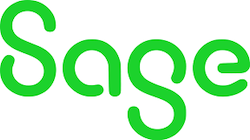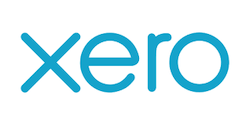Choosing the right accounting software is essential for small businesses looking to streamline their finances, save time, and stay compliant with tax regulations. With so many options available, finding the best solution can feel overwhelming.
This guide explores the top accounting software for small businesses, comparing key features, benefits, and pricing. Whether you need simple invoicing, expense tracking, or advanced financial reporting, we’ll help you find the perfect fit. Plus, we’ll answer common questions to ensure you make the right choice for your business.
The 7 best accounting software providers for small businesses
Sage
Sage offers powerful, easy-to-use accounting software designed for freelancers, sole traders, small businesses, and growing enterprises. With cloud-based solutions and desktop software, Sage helps businesses automate financial tasks, improve cash flow visibility, and streamline reporting. Whether you need simple invoicing, advanced stock management, or multi-entity consolidation, Sage provides scalable solutions to fit your needs.
From Sage Accounting for small businesses to Sage Intacct for mid-sized enterprises, businesses can manage finances efficiently, ensuring compliance and security. With over 2 million users worldwide, Sage empowers businesses with automation, real-time insights, and seamless collaboration.
Pros
- Scalable options for businesses of all sizes
- Real-time reporting and advanced analytics
- Automates financial tasks to save time
Cons
- Higher pricing for advanced features
- Some plans require desktop installation
- Limited third-party integrations in lower-tier plans
Key Features
- Invoicing: Customise, send, and track invoices on the go
- Expense tracking: Import and manage expenses with ease
- Bank reconciliation: Securely connect and reconcile transactions automatically
- Cash flow forecasting: Gain real-time visibility into finances
- VAT & Tax compliance: Simplify tax calculations and submissions
- Multi-entity consolidation: Manage multiple accounts in one system (Intacct)
- Stock management: Track and control inventory efficiently (Sage 50)
- Automated payments: Accept payments and reduce manual admin
- Custom reporting: Generate financial reports with advanced analytics
- Cloud collaboration: Work seamlessly with teams from any location
Tide
Tide Accounting is a seamless and user-friendly accounting solution tailored for small businesses. Integrated directly with a Tide business bank account, it simplifies financial management by merging banking and bookkeeping in one place. Designed to reduce admin work, Tide Accounting automates bookkeeping tasks, offers real-time profitability insights, and ensures compliance with HMRC tax regulations. Users can file VAT returns, prepare Self Assessments, and track financial performance through interactive charts and reports. There are five plans, ranging in price from £5.99 (plus VAT) per month to £22.99 (plus VAT) per month.
With features like auto-categorisation, invoice management, and the ability to connect up to three business bank accounts, Tide Accounting streamlines business finances efficiently. New users can enjoy a three-month free trial of Admin Extra, unlocking unlimited invoicing and enhanced accounting features to optimise cash flow and business growth.
Pros
- Integrated banking & accounting makes it easy to manage both in one platform
- Automated bookkeeping saves time with auto-categorisation and bulk transaction categorisation
- HMRC compliance ensures seamless VAT filing and Self Assessment preparation
Cons
- Limited non-Tide account support only allows syncing up to three external bank accounts
- Restricted accountant access means user-access for accountants is limited to certain plans
- Feature limitations on lower plans mean some key tools, like profitability insights, are only available on higher-tier plans
Key Features
- Automated bookkeeping: Real-time transaction categorisation for easy record-keeping
- VAT & Self Assessment filing: Submit tax returns directly with HMRC compliance
- Profit and Loss, Balance Sheet, and Trial Balance reporting: Generate essential financial statements
- Live Bookkeeping Score: Track outstanding accounting tasks in real time
- Integration with up to three non-Tide business accounts: Sync external accounts for a complete view of finances
- Customisable invoicing: Create and send invoices with auto-chasing and auto-matching
- Profitability insights: Interactive financial charts to help make informed business decisions
- Tax management tools: Track deadlines and set aside money for tax payments
- Accountant user-access: Provide access to an accountant for bookkeeping support
- Three-month free trial of Admin Extra: Unlock unlimited invoicing and enhanced accounting features
Xero
Xero is a leading cloud-based accounting software designed for UK small businesses. It helps automate financial tasks, streamline bookkeeping, and provide real-time insights, so business owners can focus on what they do best. With bank feeds that import transactions automatically, digital invoicing, and powerful reporting tools, Xero simplifies financial management.
Users can collaborate with accountants and employees online, ensuring access to up-to-date financial data from anywhere. The software is also HMRC-recognised, making tax compliance easier. With flexible pricing plans and a 30-day free trial, Xero is a smart choice for businesses looking to reduce admin and stay on top of their finances.
Pros
- Cloud-based accessibility allows users to manage finances from anywhere
- Extensive app integrations connect seamlessly with over 1,000 third-party applications
- Automated invoicing and reconciliation reduce manual admin work and improve efficiency
Cons
- Higher pricing compared to some competitors, especially after the promotional period ends
- Learning curve for new users due to the wide range of features and integrations
- Limited customer support with no direct phone support for immediate assistance
Key Features
- Bank connections: Link bank accounts for automatic transaction imports and reconciliation
- Online invoicing: Create and send invoices with automated payment reminders
- Expense tracking: Manage spending, reimburse employees, and control costs efficiently
- VAT returns: Calculate and file VAT returns directly with HMRC
- Reporting: Generate financial reports for insights into business performance
- Payroll: Process payroll for a small number of employees and run payroll reports
- Project tracking: Monitor budgets, track time, and manage job costs
- Multi-currency accounting: Handle international transactions seamlessly
- App integrations: Choose from 1,000+ apps to customise and enhance accounting workflows
- Accounting dashboard: Get a real-time overview of cash flow, invoices, and expenses
Moss
Moss is an intelligent spend management and accounting automation platform designed to streamline financial operations for businesses. It simplifies pre-accounting by automatically collecting and categorising transaction data, ensuring accuracy and efficiency. Moss integrates seamlessly with accounting software via two-way APIs, allowing finance teams to sync expenses, payments, and supplier data effortlessly.
With AI-powered automation, customisable approval workflows, and real-time financial insights, Moss accelerates month-end processes and enhances control over company expenditure. Businesses can choose from flexible pricing packages, tailoring the platform to their needs with add-ons like advanced accounting and ERP integrations.
Pros
- AI-powered automation reduces manual data entry and error-prone admin tasks
- Seamless two-way integrations with accounting software for real-time syncing
- Customisable approval workflows and spend tracking for enhanced financial control
Cons
- May require initial setup time to configure accounting dimensions and approval workflows
- Advanced features and ERP integrations come at an additional cost
- Limited availability outside of Europe, reducing accessibility for global businesses
Key Features
- Expense capture: Automatically collect and categorise transactions, invoices, and reimbursements
- AI-powered pre-accounting: Extract data from receipts and auto-fill accounting fields
- Accounting integrations: Sync expense and supplier data with accounting software via two-way APIs
- Custom spend attributes: Configure spend tracking based on company-specific financial dimensions
- Approval workflows: Customise approval processes to match internal finance policies
- Real-time reconciliation: Automatically match paid transactions to accounting records
- Budget tracking: Monitor company-wide spending in real time for better financial oversight
- Procurement management: Streamline purchase requests and approvals within Moss
- Corporate cards: Issue unlimited virtual and physical cards with custom limits and automated receipt fetching
- Advanced reporting: Generate insights on spending trends, supplier payments, and cash flow
Quickbooks
QuickBooks is a widely used online accounting software tailored for small businesses, freelancers, and self-employed professionals. Designed to simplify financial management, QuickBooks helps users track income and expenses, create invoices, manage VAT, and gain real-time financial insights. With powerful automation, seamless bank connections, and built-in tax compliance features, businesses can save time and reduce administrative work.
QuickBooks also offers scalable pricing plans, catering to businesses of all sizes, from sole traders to enterprises requiring advanced reporting and payroll integration.
Pros
- User-friendly interface with a mobile app for managing finances on the go
- Seamless integration with banks, accountants, and payment processors
- Automated VAT submission compliant with HMRC’s Making Tax Digital rules
Cons
- Advanced features like payroll and project tracking require additional fees
- Limited reporting capabilities in lower-tier plans
- Some users report occasional syncing issues with bank feeds
Key Features
- Expense tracking: Automatically categorise expenses and upload receipts via mobile or desktop
- Bank integration: Connect accounts for real-time transaction syncing and reconciliation
- Invoice management: Create and send professional invoices with payment tracking
- VAT compliance: Prepare and submit VAT returns with an error-checking feature
- Payroll integration: Automate employee payments with an optional payroll add-on
- Cash flow insights: Monitor financial health with real-time reports and dashboards
- Multi-currency support: Manage transactions in over 145 currencies
- Project tracking: Track employee time, set budgets, and measure project profitability
- Advanced reporting: Generate financial statements, profit & loss reports, and business analytics
- Collaboration tools: Invite accountants and bookkeepers for seamless data sharing and support
Freshbooks
FreshBooks is an intuitive cloud-based accounting software designed for freelancers, solo traders, and small businesses. It simplifies invoicing, expense tracking, and financial reporting, allowing users to focus on growing their business instead of crunching numbers. With features like automated billing, online payments, and double-entry accounting, FreshBooks helps streamline financial management.
The platform integrates with 100+ apps, supports multi-currency transactions, and offers mobile access for on-the-go bookkeeping. Its award-winning customer support ensures users get help whenever needed. Whether you’re a freelancer or running a business with employees, FreshBooks provides powerful yet easy-to-use tools to save time and improve cash flow.
Pros
- Easy-to-use interface with automation features
- Strong invoicing and payment tracking tools
- Excellent customer support
Cons
- Limited advanced accounting features
- Lacks comprehensive inventory management
Key Features
- Professional invoicing: Create and customise invoices with automated billing and payment reminders.
- Expense tracking: Automatically track expenses with receipt scanning and bank imports.
- Online payments: Accept credit card and bank payments with secure integrations.
- Time tracking: Log billable hours and auto-add them to invoices.
- Financial reporting: Access profit & loss, tax summaries, and real-time financial reports.
- Double-entry accounting: Maintain accurate records with built-in accounting tools.
- Mobile access: Manage finances from anywhere using the FreshBooks mobile app.
- Project management: Collaborate with teams, set budgets, and track project profitability.
- Multi-currency & multi-language supportV Get paid in different currencies with global accessibility.
- Third-party integrations: Connect FreshBooks with over 100 apps, including Shopify, Stripe, and Zapier.
Crunch
Crunch is an award-winning online accounting service designed for freelancers, contractors, and small businesses. Combining easy-to-use software with expert support from ACCA Chartered Certified Accountants, Crunch simplifies financial management. It offers flexible pricing, unlimited accounting advice, and seamless automation to save time and reduce tax burdens.
With features like invoice creation, expense tracking, and open banking integration, Crunch ensures that users stay on top of their finances without the hassle. Trusted by over 40,000 businesses, Crunch provides HMRC-recognised accounting services tailored to various industries. Whether you’re a sole trader or running a limited company, Crunch offers a scalable solution to meet your needs.
Pros
- Unlimited tax and accounting advice
- Affordable, all-inclusive pricing
- Expert support from chartered accountants
Cons
- No advanced inventory management
- Limited third-party integrations
- No dedicated payroll feature
Key Features
- Invoicing: Create, send, and track unlimited invoices from any device
- Expense management: Scan receipts, track expenses, and automate claims
- Bank reconciliation: Easily match expenses and invoice payments with bank statements
- Open banking integration: Sync transactions directly from your bank
- Financial reporting: Get real-time insights and reports to monitor cash flow
- Corporation tax & VAT management: Ensure compliance with tax obligations
- Year-end accounts filing: Automate and streamline tax return submissions
- Dedicated account manager: Personalised support to guide financial decisions
- Self-assessment tax returns: Simplify personal tax filing with expert guidance
- HMRC & ACCA compliance: Trusted, certified services for accurate financial management
FAQS
1. What features should I look for in small business accounting software?
A good accounting software should include essential features such as invoicing, expense tracking, bank reconciliation, cash flow forecasting, tax compliance, and real-time reporting. Depending on your business needs, you may also want automation tools, payroll support, and integrations with payment platforms and banks.
2. How does cloud-based accounting software benefit small businesses?
Cloud accounting software allows business owners to manage their finances from anywhere, collaborate with accountants remotely, and securely store financial data. It also provides real-time updates, automated backups, and seamless software updates to ensure compliance with tax regulations.
3. Can accounting software help with tax returns and VAT submissions?
Yes, most modern accounting solutions include tax calculation and filing features, ensuring compliance with VAT and tax regulations. Some even integrate directly with tax authorities for seamless submissions, reducing the risk of errors and penalties.
4. Is accounting software suitable for freelancers and sole traders?
Absolutely. Many accounting platforms offer tailored plans for freelancers and sole traders, including simple invoicing, expense tracking, and tax calculations. These plans are often more affordable and designed to streamline financial management for self-employed professionals.
5. What’s the difference between cloud-based and desktop accounting software?
Cloud-based software provides flexibility, allowing access from multiple devices with automatic backups and updates. Desktop software, on the other hand, is installed on a computer and may offer advanced offline features but requires manual updates and backups. The choice depends on business size, mobility needs, and data security preferences.





















Comments 2